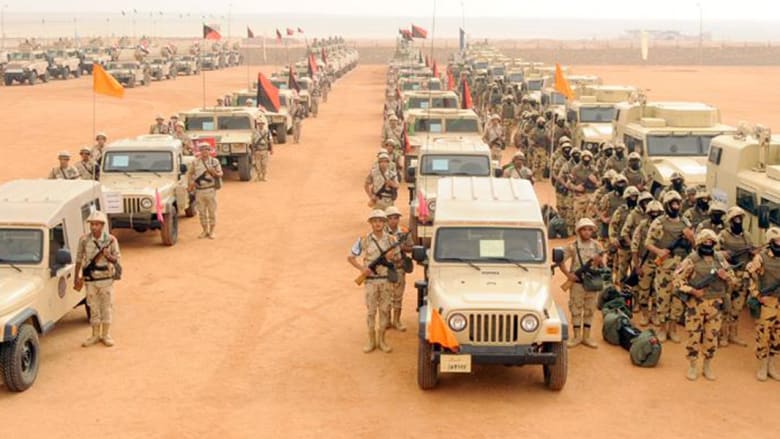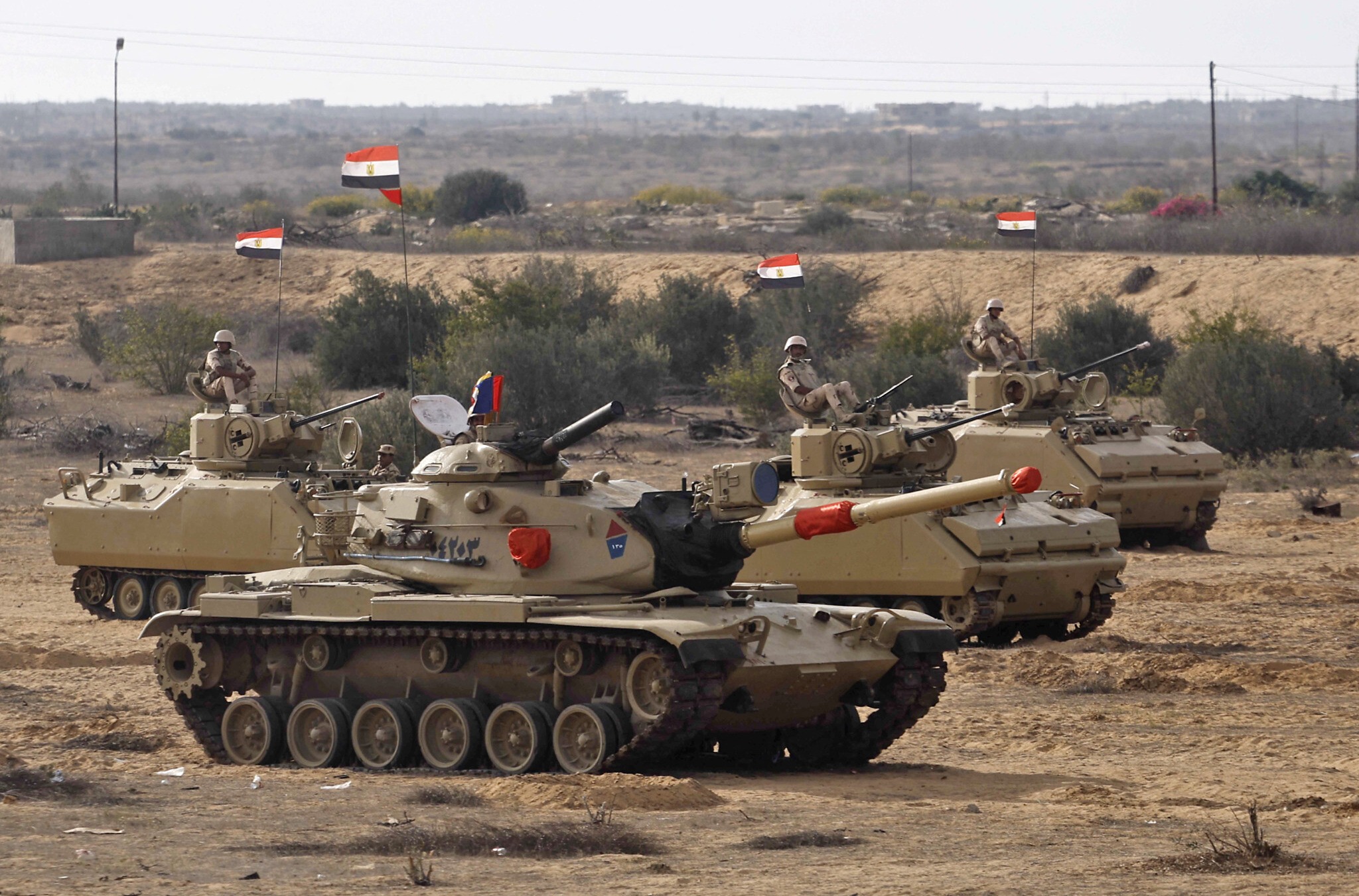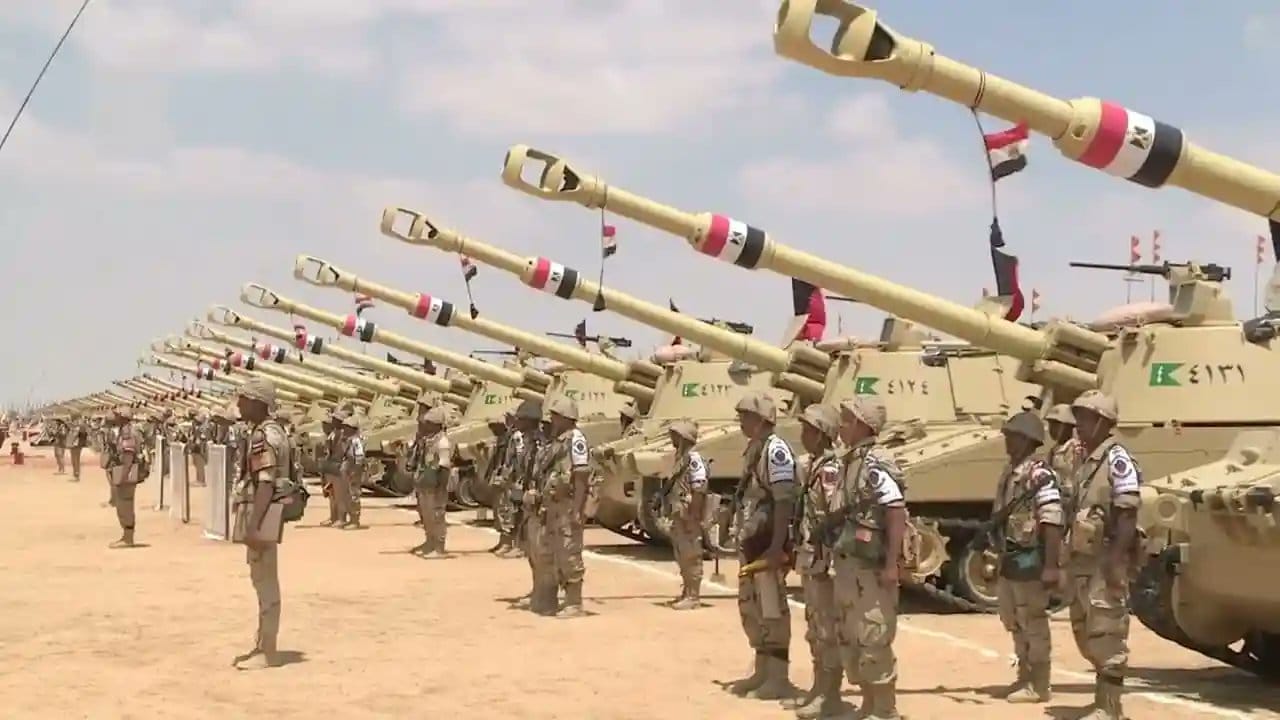Netanyahu Ties Gas Deal with Egypt to Its Presence in Sinai: What’s Changed?
![Hertzi Halevi: “We think that it [Egypt] is not a threat at the moment, but it could change in an instant.”](https://s3.eu-west-3.amazonaws.com/alestiklal/gallery/2025/9/11/1486285842.png)
Hertzi Halevi: “We think that it [Egypt] is not a threat at the moment, but it could change in an instant.”
The growing presence and military buildup of the Egyptian army in the Sinai Peninsula has become a new headache for the Israeli Occupation, even affecting the “historic gas deal” between both sides.
Israeli Prime Minister Benjamin Netanyahu reportedly instructed that the gas export agreement not move forward without his approval, according to Israel Hayom on September 2, 2025.
This move goes beyond administrative procedure, reflecting deep Israeli concern over military developments in the peninsula bordering the occupied Palestinian territories and Gaza, where the Israeli Occupation has conducted a bloody war of genocide for 23 months.
Analysts note that Egypt’s military presence is no longer seen solely as part of counterterrorism cooperation but increasingly as a strategic factor that could reshape the balance between Cairo and Tel Aviv.

Pressure Card
According to the Hebrew newspaper, the decision followed reports that Cairo had “violated” the security annex of the treaty, whether by building tunnels capable of storing weapons, expanding airport runways, or deploying infantry and armored units in numbers exceeding the allowed limit without Israeli approval.
On August 7, 2025, the Israeli companies Ratio and NewMed Energy signed an agreement to export 130 billion cubic meters of gas from “Israel’s Leviathan field.”
Egyptian company Blue Ocean Energy was set to import the gas in a $35 billion deal—the largest between the two countries—running until 2040. However, the agreement was frozen due to the military developments in Sinai.
The deal was also supposed to be part of a broader series of Israeli Occupation natural gas supplies to Egypt over the past five years.
Under the law, the Israeli energy minister must approve the deal on behalf of Tel Aviv, and without his signature, it cannot take effect.
The agreement is now being reconsidered at the highest levels of the state until Netanyahu instructed that it be submitted to him, as per Israel Hayom.
The Israeli Occupation has long promoted the political and economic benefits of these partnerships, but it is now using this economic leverage as a political tool to pressure Cairo over what it sees as “alarming military breaches” in Sinai.
Ironically, Israel Hayom notes, Washington itself has eased its oversight of Sinai’s security arrangements in recent years after the role of the U.S.-led international monitoring force diminished.
Today, the Israeli Occupation faces a difficult balance: it needs to maintain the energy partnership with Egypt to secure a strategic outlet for exporting Palestinian gas, while simultaneously seeing Egypt’s growing military capabilities in Sinai as a direct threat to “the peace agreement” that has underpinned its Middle East policy for four decades.
Caught between gas and security, a new tension is emerging in Cairo-Tel Aviv relations, with the Egyptian army in Sinai at the center.

Rapid Developments
Amid rising tensions between Cairo and Tel Aviv over Egypt’s expanded military presence in Sinai, Netanyahu escalated the dispute on September 4, 2025, by speaking about the Rafah crossing.
In an interview with Abu Ali Express on Telegram, he said that the Rafah crossing could be opened for Palestinians to leave, but Egypt would immediately close it, referring to Cairo’s firm rejection of any mass displacement from Gaza into Egyptian territory.
“I can open the crossing for them, but they will be immediately blocked on the Egyptian side.”
The Egyptian Foreign Ministry quickly responded, viewing the remarks as an attempt to push political agendas at Egypt’s expense and to exploit the displacement issue as leverage in regional matters, including Sinai, where Israeli circles have sought to curb Egypt’s military presence.
Netanyahu’s office fired back with a statement accusing Cairo of “restricting the freedom of Gaza’s residents to leave a war zone despite their desire to do so.”
However, Egypt’s position became even clearer the following day, when Foreign Minister Badr Abdelatty stressed at a press conference in Nicosia that “displacement is a red line for Egypt.”
Abdelatty added that accepting the Israeli plan would effectively dismantle the Palestinian cause, a step with no legal or moral basis.
These exchanges indicate that the dispute is no longer limited to managing Gaza or border crossings but has expanded to strategic dimensions, including Egypt’s rejection of displacement and its commitment to strengthening its military presence in Sinai.
This stands in contrast to increasing Israeli pressure to restrict Egypt’s deployment in Sinai under the pretext of preserving the balance of “the peace agreement” and “Israel’s national security.”
Signs of Concern
In recent months, public and private signals have highlighted growing Israeli unease over the Egyptian army’s expanding capabilities and deployment in Sinai.
On January 28, 2025, Israeli Occupation’s ambassador to Washington, Yechiel Leiter, said that Egypt is “seriously violating the peace agreement” in Sinai, stressing that the construction of new military bases could only be interpreted as preparation for offensive operations.
During a Zoom meeting with leaders of American Jewish organizations, he added that this is unacceptable and will explode soon, a statement so sensitive that the recording was later deleted to avoid a full diplomatic crisis.
Just two days later, “Israel’s” UN ambassador, Danny Danon, echoed similar concerns, noting that the Egyptians were spending hundreds of millions of dollars on advanced military equipment they do not need.
“They spend hundreds of millions of dollars on modern military equipment every year, yet they have no threats on their borders,” Danon said during a Kol BaRama radio interview.
“Why do they need all these submarines and tanks? After October 7, this should raise alarm bells. We have learned our lesson. We must monitor Egypt closely and prepare for every scenario.”
Yedioth Ahronoth reported that World Jewish Congress President Ron Lauder traveled to Cairo to try to calm tensions with the head of the Egyptian regime, Abdel Fattah el-Sisi.
The concern was not limited to diplomats. In February 2025, then-Chief of Staff Hertzi Halevi expressed fears that the Egyptian security threat could change in an instant. Addressing a group of officer graduates in Holon, he noted, “Egypt has a massive military, equipped with advanced combat systems, fighter jets, submarines, warships, and modern tanks, along with a vast number of infantry troops.” “We are very worried about this,” he said.
In March 2025, War Minister Israel Katz joined the chorus of warnings, stating that Egypt is the largest and strongest Arab state and remains so. He praised the “1979 peace treaty” that kept Egypt out of the war equation but stressed, “Israel would not allow Egypt to violate the peace treaty.”
Weeks later, in early April, Israel Hayom cited a senior security official saying that Egypt is strengthening its military infrastructure in Sinai like never before, calling it a “clear violation of the security annex.” According to the newspaper, Katz called the issue a “top priority,” warning that “Israel” will not accept this situation no matter how long it takes.
Taken together, these statements reveal that Tel Aviv no longer views Egypt’s military presence in Sinai as merely an accepted reality of “counterterrorism” cooperation; instead, it now sees it as a strategic threat capable of shifting the regional balance of power.

Egyptian Military Presence
The al-Masar Studies has identified growing signs of Israeli Occupation concern over Egypt’s expanding military presence in the Sinai Peninsula and its implications for Cairo-Tel Aviv relations.
According to a research paper published by the center on May 23, 2025, Egypt has deployed around 88 battalions in Sinai since 2018, totaling 42,000 soldiers, along with three fully equipped military divisions and over 1,500 tanks and armored vehicles.
Air defense systems have been strengthened, airports upgraded, and naval docks expanded, reflecting a structural transformation in Egypt’s military posture in the region.
The study notes that this presence initially operated in coordination with “Israel” from 2015, under joint understandings to combat “armed groups” and destroy tunnels along the Gaza border.
However, the events of October 7, 2023, marked a turning point; the Israeli Occupation began to interpret this presence as a potential shift in the balance of power, not merely internal security arrangements.
This view was reinforced by Reserve General Itzhaq Brik, who reported that by May 2025, the number of Egyptian battalions in Sinai had reached approximately 180—about four times the limit allowed under the “Egypt-Israel peace treaty.”
The al-Masar researchers argue that the Israeli Occupation’s stance cannot be separated from broader political calculations beyond immediate military concerns.
Through recent campaigns, Tel Aviv aims to pressure Cairo on sensitive issues, including Egypt’s firm rejection of any Palestinian displacement into Sinai and its role as a key mediator in negotiations related to the ongoing Israeli war on Gaza.
The paper concludes that this situation reflects a classic example from the realist school of international relations: any enhancement of military capabilities by one side, even for defensive reasons, is seen by the other as a potential threat.
This perception prompts countermeasures, creating a cycle of distrust and escalation.
In the Egyptian-Israeli context, the legacy of four wars before the “Camp David peace agreement” means that any military development by Egypt in Sinai is not interpreted solely as an internal security measure.
Rather, it is read as a latent power capable of reshaping the regional balance, regardless of Cairo’s stated intentions, according to the center.
Sources
- With Gaza tensions high, Egyptians and Israelis warn of a new war
- Israel has powerful leverage over Egypt; it should use it
- Cairo slams Netanyahu after suggesting he would let Gazans cross into Egypt
- Israeli UN envoy warns of Egypt's military buildup: 'Why all the submarines and tanks?'
- “A Growing Threat”: Israeli Defense Chief Sounds Alarm Over Egypt’s Expanding Military Power
- Israel ‘will not allow Egypt to violate peace treaty’: Defense minister
- “No Pullback” of Egypt’s Army in Sinai: Will the Gaza War Force Cairo and Tel Aviv to Revisit the Camp David Accords? [Arabic]
- After Peace Treaty Violations: Netanyahu’s Decision on the Gas Deal with Egypt [Hebrew]
- Israeli Study Outlines How to Deal with the Egyptian Army in Sinai [Arabic]
- Israeli General Claims Massive Military Build-Up in Sinai: Analysts Respond [Arabic]











